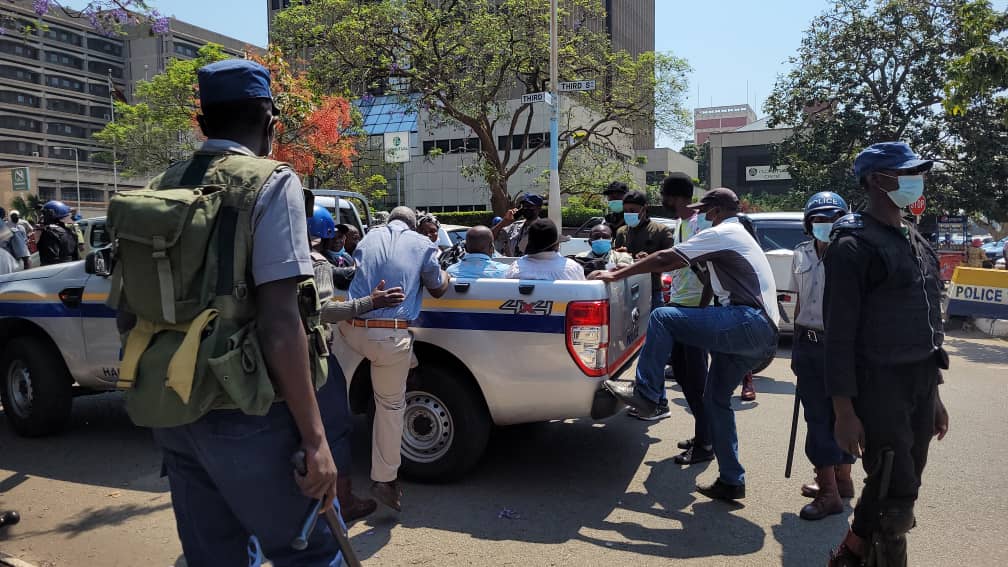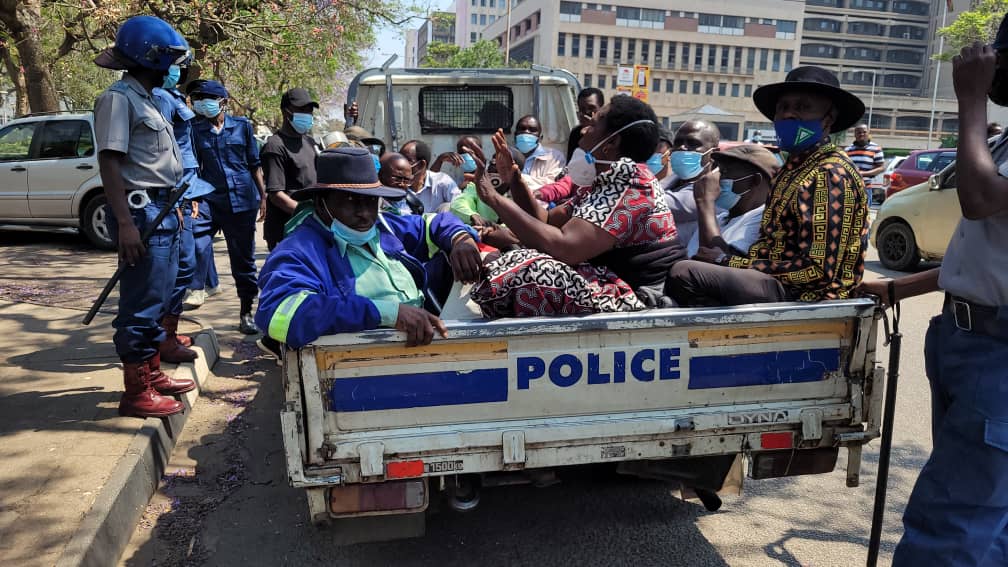HARARE – At least 40 independence war veterans were arrested in central Harare on Tuesday during a demonstration over low pensions.
The war veterans were prevented from presenting a petition to President Emmerson Mnangagwa after they were rounded up by anti-riot police who arrived in pick-up trucks and lorries.
The Zimbabwe Lawyers for Human Rights (ZLHR) sent three lawyers to represent the 40, who were detained at the Harare Central Police Station.
“The war veterans are yet to be advised of the charges they are facing,” the ZLHR said in a statement on Tuesday afternoon.
The liberation fighters had gathered at Africa Unity Square where they sang war songs and spoke to journalists, before police moved in.
Auxillia Mutasa of Mabvuku, who said her liberation war nom de plume was Hope Freedom, said: “We’re not afraid of death, we’re dead already. We thought it was a noble cause that people went to war and came back home to enjoy the fruits, but we’re hungry and our children will have nothing long after we’re gone.
“Those in government, their shirts can hardly hold their stomachs while we suffer. They can arrest us, we’re not worried about being arrested. We went to war. If they want, they can also kill us because we’re tired of suffering.”
War veterans are currently getting pension payouts of around Z$14,000 or less than US$80 on the widely-used foreign currency exchange on the parallel market.
“I’ve never been to Victoria Falls,” said Mutasa, “but we went to Mozambique to liberate this country so that all of us will be fed. Now just a few are feeding from national resources. I want money.”
Another war veteran at the protest said: “They’re taking us for granted all the time, they treat us like children. They’re busy building mansions, while they take our scholarships to give to their children.”

Zimbabwe, which got its independence from Britain in 1980, did not pay gratuities to veterans of the 1970s war until 1997, with initial payments of a Z$50,000 lump-sum (about US$4,300 at the time), and Z$2,000 monthly pensions.
The currency crashed shortly after, wiping out the value of the pensions. The government has also struggled to keep up with school fees payments and health insurance for the war heroes and their children.
















